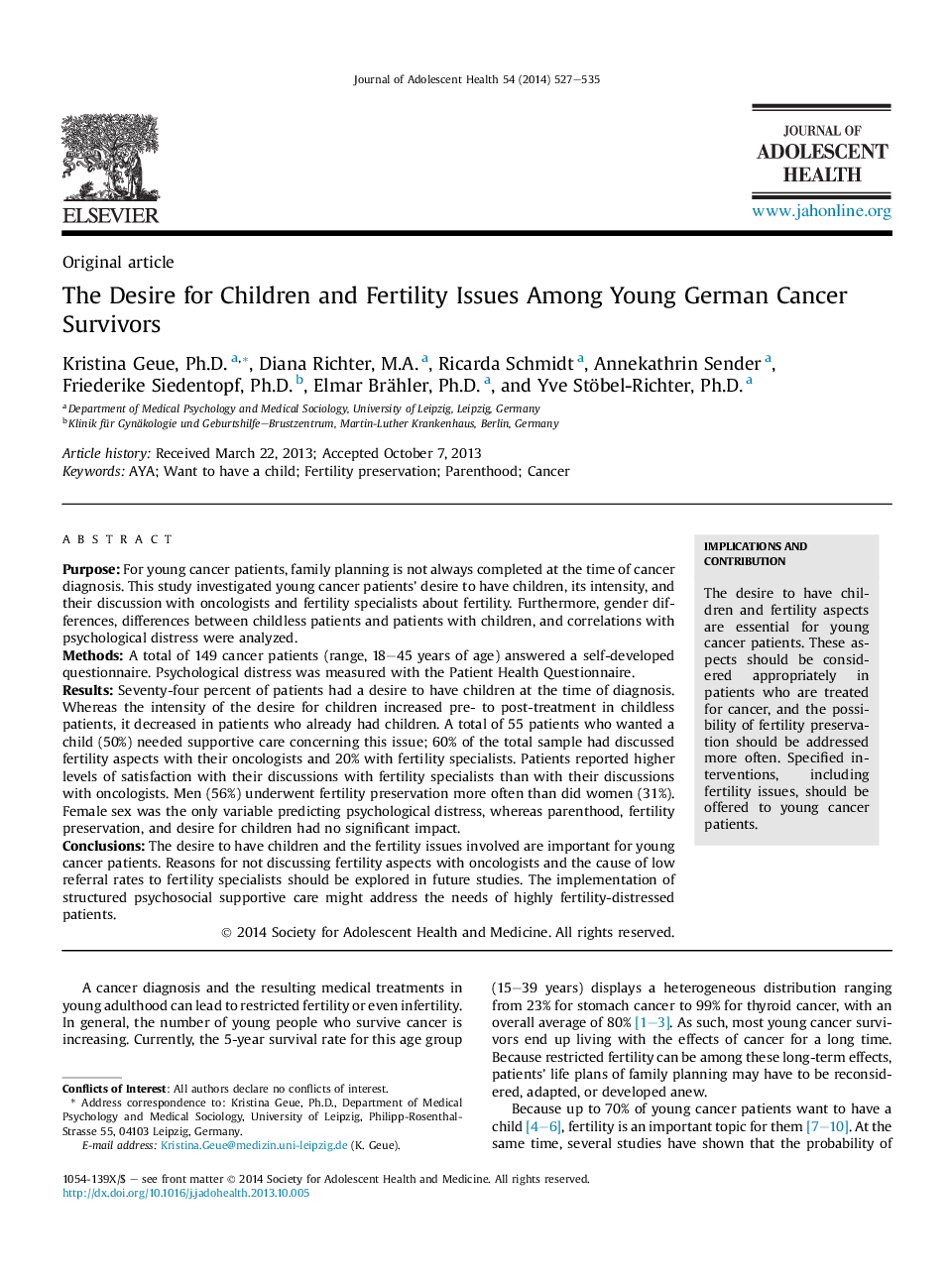| Article ID | Journal | Published Year | Pages | File Type |
|---|---|---|---|---|
| 1078107 | Journal of Adolescent Health | 2014 | 9 Pages |
PurposeFor young cancer patients, family planning is not always completed at the time of cancer diagnosis. This study investigated young cancer patients' desire to have children, its intensity, and their discussion with oncologists and fertility specialists about fertility. Furthermore, gender differences, differences between childless patients and patients with children, and correlations with psychological distress were analyzed.MethodsA total of 149 cancer patients (range, 18–45 years of age) answered a self-developed questionnaire. Psychological distress was measured with the Patient Health Questionnaire.ResultsSeventy-four percent of patients had a desire to have children at the time of diagnosis. Whereas the intensity of the desire for children increased pre- to post-treatment in childless patients, it decreased in patients who already had children. A total of 55 patients who wanted a child (50%) needed supportive care concerning this issue; 60% of the total sample had discussed fertility aspects with their oncologists and 20% with fertility specialists. Patients reported higher levels of satisfaction with their discussions with fertility specialists than with their discussions with oncologists. Men (56%) underwent fertility preservation more often than did women (31%). Female sex was the only variable predicting psychological distress, whereas parenthood, fertility preservation, and desire for children had no significant impact.ConclusionsThe desire to have children and the fertility issues involved are important for young cancer patients. Reasons for not discussing fertility aspects with oncologists and the cause of low referral rates to fertility specialists should be explored in future studies. The implementation of structured psychosocial supportive care might address the needs of highly fertility-distressed patients.
